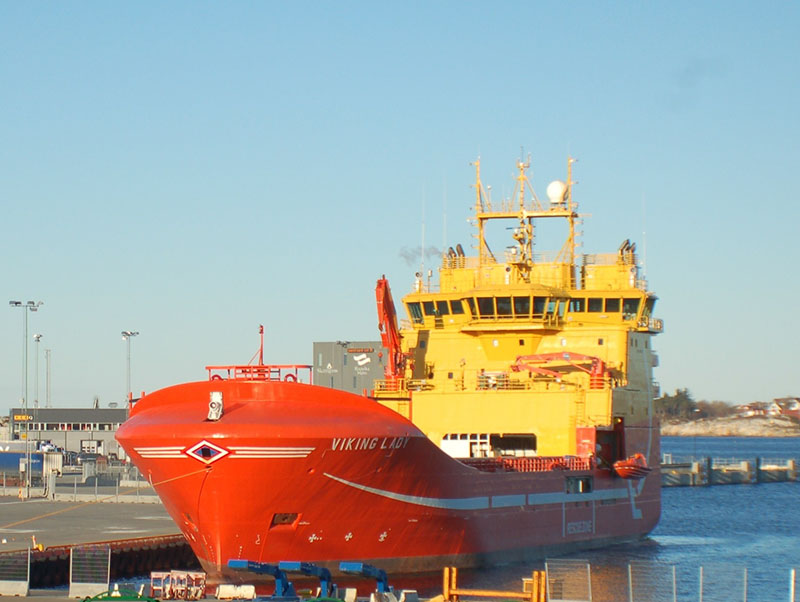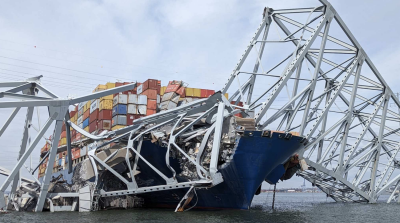Adopting hybrid power for offshore vessels can bring paybacks for vessel operators in lower emissions and fuel costs, and valuable backup energy in the event of power failures, according to a DNV GL team developing battery power systems.
“We tried to quantify everything that could be a value to the vessel owner to monetize the benefits of hybrid power,” Davion Hill, who heads battery development for the group, told an audience Wednesday at the 2016 International WorkBoat Show.
DNV GL has been involved with Wartsila, Cummins and other power providers to develop hybrid systems, including the PSV Viking Lady project, the North Sea supply vessel that serves as a test bed for new concepts.

Sergio Garcia (left) of DNV GL at the 2016 International WorkBoat Show. Doug Stewart photo.
“We are in the fourth stage of this project,” said Sergio Garcia, maritime Americas development director for DNV GL. Starting with fuel cells in 2010, the Viking Lady got high-tech batteries in 2013 and results from the program should be complete in 2017, he said.
The technology is maturing with more conversions and newbuilds using hybrid power coming on in northern Europe. In early 2016, DNV GL issued its first classification rules for battery power, Garcia said.
Among the lessons learned were “the bigger the vessel gets, the better the costs,” Hill said. But for all vessels studied, from tugs to shuttle tankers to drillships, hybridization costs pay off within a year, he said.
Shuttle tankers can get the most immediate cost benefit because battery banks can effectively replace the need for some onboard generation. For the tankers, batteries are an additional margin of safety. A complete power loss while maneuvering is close quarters is a low-probability event, but backup power can provide previous time in an emergency, Hill noted.
Savings can be big for drillships – along with the upfront costs. For battery suppliers, a single drillship using up to 50 megawatts “is a huge project for them,” he said.





